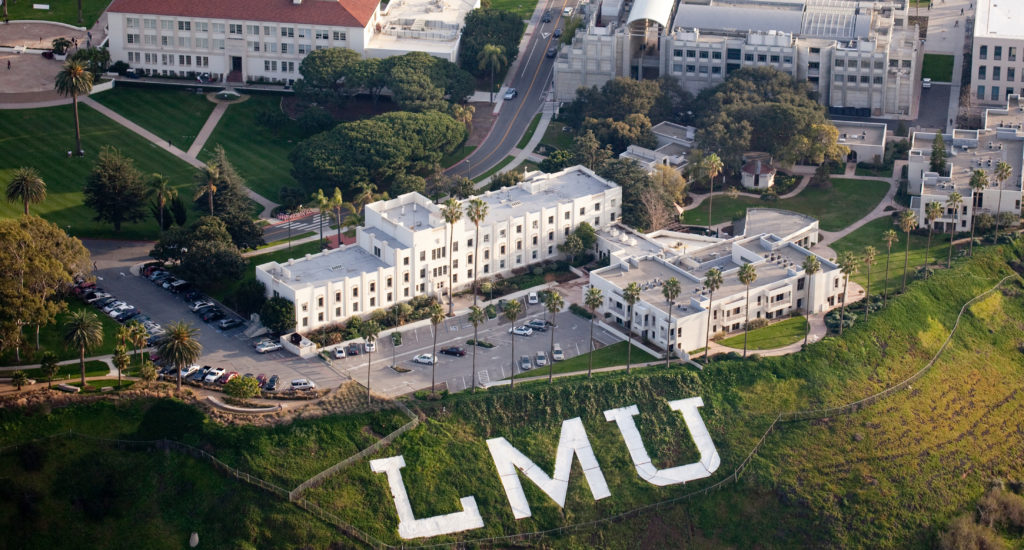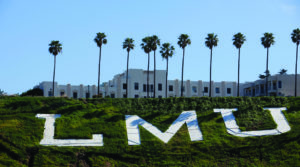Cabinet Corner is a periodic feature of LMU This Week where the university’s executive leaders share their perspectives with the community. The President’s Cabinet will provide updates on initiatives, policies, events, challenges, and areas of interest.
Executive Vice President and Provost Thomas Poon, Ph.D. writes:
I extend my warmest gratitude to all those who took part in our faculty and staff town halls. With all the work and personal responsibilities that each of you balance during this health crisis, I am in awe that so many took the time to join me. Your engagement speaks volumes to the commitment we share for our LMU community. If you were not able to attend, town hall recordings can be viewed here.
Below I share answers to the top questions we were unable to address during our time together. I received additional questions that surfaced since the town hall so I included and answered them as well. Please note, the wording on some of the questions has been adjusted to incorporate additional similar questions or for clarity.
Q: There are open university leadership positions still being posted despite staffing reductions across campus. Why is this still happening and couldn’t those salaries be used to bring back furloughed staff?
We have a limited number of leadership and staff positions posted because they address urgent needs for the university that cannot be postponed. Each position was vetted with rationales provided to the president or appropriate executive vice president. Please note that the limited positions that are posted and furloughed positions are not necessarily in conflict as the question suggests. We reevaluate health guidance, the university’s workforce needs, and other considerations on a regular basis with the hope of recalling furloughed employees as feasible. Regrettably, furloughed staff members who have not yet been recalled to work remain furloughed because there is little or no work for them based on current health restrictions imposed by L.A. County.
Q: What efforts are being made and what initiatives are being put in place to ensure that our faculty and staff who are parents and elder caregivers can function at their best without having to compromise on the essential care that they provide to their families?
I understand the many challenges the pandemic has created for working parents of young children and colleagues caring for family members. Supervisors, department chairs, and deans have been asked to consider challenges that faculty and staff are facing and to provide as much flexibility as feasible. Employees with extenuating circumstances should start by having a conversation with the appropriate supervisor. Regarding childcare, the LMU Children’s Center offers an online instruction program, on a month-to-month basis, for children 6 years old and under while the center remains closed. HR offers Working Through COVID support on its website, which includes virtual wellness resources focused on mental health, mindfulness, and more. Employees with more extenuating circumstances should contact HR.
Q: Do you anticipate senior leadership (president, cabinet, deans, etc.) having more than a 10 percent pay cut to allocate funds to other departments facing furloughs and pay cuts?No, not at this time. The 10% pay cuts to senior leadership were among the university’s early budget reductions and allowed us to delay furloughs and increase student financial aid. Additionally, senior leaders were also subject to the same shared sacrifices we asked of faculty and staff, including the AMI pause and the suspension of university-provided retirement contributions. For senior leaders, these cuts already total more than 20% of compensation. While the decision to furlough employees is among our options of last resort, please note that due to public health mandates these positions have little to no work or their functions are substantially restricted.
Q: Will the Staff Senate be part of the strengthening of shared governance?
We have asked the Staff Senate for representatives on the university’s Implementation Groups. Staff Senate leadership also meets periodically with the president and EVPs. We will consult with the Staff Senate president about further steps we could take to ensure staff input is appropriately considered. While I support the desire for staff to contribute to shared solutions, faculty have shared governance responsibilities for the curriculum, faculty hiring and promotion and similar matters that differ from the responsibilities of staff.
Q: Has the university made any effort to help furloughed staff gain access to unemployment and other resources if they did not have the means to do it?
HR remains available to assist furloughed staff in navigating the unemployment process. The HR website offers various resources and FAQs for furloughed colleagues, including information about benefits and eligibility for applying for state unemployment benefits. LMU Loyola Law School has offered assistance and staff may contact Neighborhood Legal Services (NLS) at 800.433.6251. Additional information about NLS may be found here.
Q: If enrollments are good news and we are on target (or above), why does the university continue to implement such deep budget reductions?
In my Aug. 19 town hall, I detailed revenue shortfalls and additional expenses the university has incurred during the COVID-19 pandemic. For example, by limiting our on-campus housing to students with extenuating circumstances only, that change alone adds over $20 million to our revenue shortfalls for the fall alone. The loss of revenue from other campus fees combined with increased student financial assistance has increased shortfalls significantly too. The reductions are needed to balance the budget, even if we do meet enrollment targets. While we are optimistic about our enrollment numbers, we acknowledge that they may change and cannot yet be counted as final. Enrollments are not set until midway through each semester, and the unpredictable nature of the pandemic does not allow us to be as confident in our budget as we would be in pre-COVID times.
Q: Why is LMU proceeding with the Master Plan which includes the construction of a new athletics facility when the university is cutting costs elsewhere?
The Master Plan amendment is a multi-year consideration and approval process in collaboration with external and public entities that also set their own timetables. While the university is not incurring significant expenses as we move forward, there are financial and other consequences if we delay this process. Please note that the eventual construction of a new competition venue remains years away and will be funded through private fundraising. Neither the amendment process nor the proposed construction has impacts on the current budget, so it’s inaccurate to pose that the university is spending on new athletics facilities while slashing other areas. Also, we are laying the groundwork for our future and upholding our commitment to the 400-plus student athletes we enroll every year so that they compete in their sports and succeed in the classroom.
Q: Has LMU implemented a COVID contact tracing program ?
LMU has a dedicated COVID Support Team to assist with contact tracing in consultation with the L.A. County Department of Public Health. The team also supports members of the LMU campus community who have been exposed to or contracted COVID-19 by providing individuals with instructions on proper isolation or quarantine and other resources.
The COVID-19 Support Team is a robust cross-functional resource group of highly trained professionals from across the university. Members have public health, medical and/or investigative experience and have completed comprehensive training developed by the Johns Hopkins Bloomberg School of Public Health, as well as training on data privacy. The team follows all L.A. County Department of Public Health protocols. For further information, please contact COVID-19ResponseTeam@lmu.edu.
Q: When will the LMU community be notified about positive cases of COVID-19 in students, faculty or staff?
An LMU Alert will be issued when three or more related cases of COVID-19 are recorded within 14 days among campus residents or essential employees working on campus. Any individual who may have been exposed to a positive or suspected case will be notified in a separate communication before the LMU Alert is issued. These notifications are sent in compliance with L.A. County Department of Public Health mandates and the Jeanne Clery Disclosure of Campus Security Policy and Crime Statistics Act.
Q: The university supported LMU Loyola Law School considerably when they were in crisis because of the 40 percent+ drop in enrollments at law schools. How much of that money has been repaid? How much is outstanding?
This was not a loan and the university’s commitment to quality legal education is ongoing. Earlier this decade, consistent with national law school trends, LMU Loyola Law School experienced declines in enrollment that were forecast to continue indefinitely. Recognizing this national trend, the university adopted a multi-year investment strategy to maintain and improve the law school’s academic quality, while realigning enrollments, and repositioning programs more competitively. These actions resulted in a significant reduction in faculty and staff and budget changes while maintaining and improving academic and graduate employment outcomes.
Q: Why, in a time of financial cuts, are we renting properties at 20 percent below market rate, especially when there is no means testing and many of these properties are being rented to some of our highest?paid employees?
The university owns and rents homes in the community as a recruitment tool for new faculty members and administrators. Some administrators have responsibilities that require them to attend campus functions frequently during evenings, weekends, or holidays or to be accessible or available to manage campus operations or activities. Proximity to campus is essential for these employees to perform their functions effectively.
The Faculty Housing Office strives to rent residential properties at low market rental rates in order to provide affordable living near campus to qualified candidates. The university’s Off-Campus Residential Properties Policy offers an explanation about rental rates, goals, lease terms, and more.



